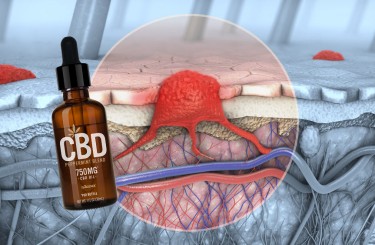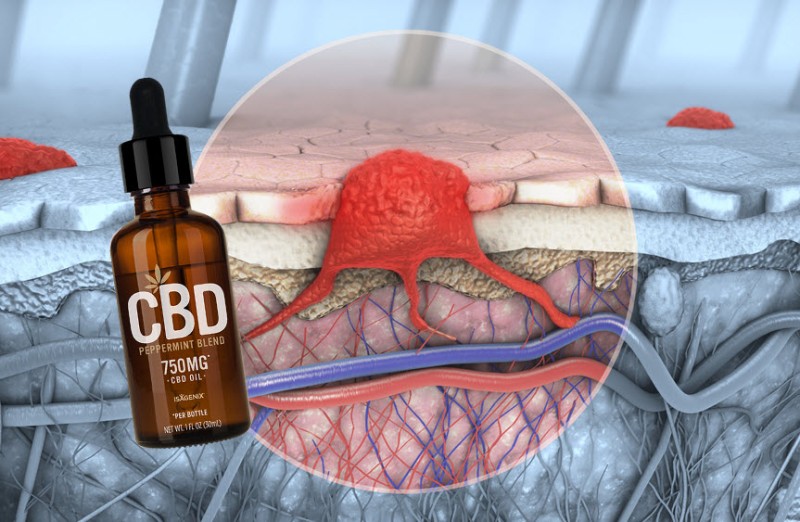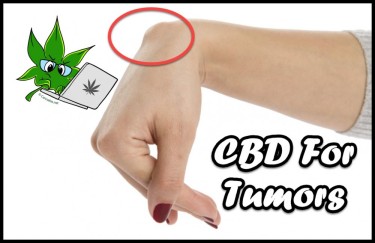
The Big C is a serious condition that plagues major populations around the world.
According to the World Health Organization (WHO), cancer accounted for some 10 million deaths globally in 2020 alone. It’s still the world’s leading cause of death, and it doesn’t just impact families and societies at large, but it also has a tremendous effect on the economy.
While early detection is always the best case scenario for treatment and improving prognosis, it’s not always possible. Treatment for cancers and tumors include one or a combination of methods such as chemotherapy, radiotherapy, or surgery. However, if tumors are of higher grade, treatment may require surgery as well as radiation therapy then chemotherapy.
How Cannabis Helps With Cancer
A new study from Augusta University, focused on glioblastoma, one of the deadliest and fastest growing forms of brain tumors, reveals that cannabidiol (CBD) is a beneficial form of treatment. The prognosis for glioblastoma is a 15 month survival rate following diagnosis, based on data from the Glioblastoma Foundation. Despite new research on the cancer over the last 15 years, survival has only increased by 2 months, explains Dr. Martin Rutkowski, a Medical College of Georgia at AU neurosurgeon, and one of the study’s researchers.
“We’re pretty desperate for better therapies,” he tells the Augusta Chronicle.
Cannabidiol has a lot of potential for tumor therapy, says Dr. Babak Baban, the Dental College of Georgia’s associate dean in research. It’s considered relatively safe, and has been proven to help regulate the immune system effectively. Baban explains that glioblastomas create a microenvironment that are “one of the most complex for tumors.”
The tumors grow by creating new blood vessels, a process known as angiogenesis. “Through angiogenesis, it can spread out, it can survive,” he says. For this, glioblastoma “is the most aggressive one in the central nervous system.”
The researchers used mice subjects who were made to produce the tumors internally, and they were then administered with inhaled CBD. After this, the tumors reduced in size noticeably compared to the mice who were not given any CBD. In addition, they found that CBD seemed to obstruct at least 3 components that are required for angiogenesis to occur.
Aside from that, glioblastomas are tricky to treat because they evade the immune system through immune checkpoints. Rutkowski clarifies that by comparing it to a protective barrier that forms around the tumor. “They’re very good at shielding themselves so we need ways to drop the shield and make the immune system more effective at finding them,” he says.
“I am skeptical when it comes to CBD treating depression or anxiety or financial distress or marriage problems,” he says. “That’s probably not all true. But now that we have some basic science that supports this therapy I think it is really exciting.”
“Overall, our novel findings support the possible therapeutic role of inhaled CBD as an effective, relatively safe, and easy to administer treatment adjunct for GBM with significant impacts on the cellular and molecular signaling of TME (tumor microenvironment) warranting further research,” the authors conclude.
In October 2021, doctors in the UK released an article documenting an elderly woman in her 80’s who was diagnosed with lung cancer. The case, which was published in BMJ Case Reports, details her medical history which included high blood pressure, chronic obstructive pulmonary disease, and osteoarthritis.
The woman admitted to smoking over one pack of cigarettes a week, both before and after her diagnosis. By June and July of 2018, the doctors tested her using a PET scan, MRI, CT scan, as well as a biopsy. They diagnosed her with Stage IIB of non-small cell lung cancer (NSCLC). By September 2019, the chest CT scan was repeated, showing 2 new nodules in the upper right lobe and left apex. She declined surgery to remove the lobe because of risks, and also declined radiofrequency ablation due to the side effects suffered by her late husband from radiation therapy.
By this time, she admitted to starting CBD oil treatment with 0.5 ML 3x per day orally, then twice daily, after she was diagnosed. The CBD oil supplier advised her not to take the CBD oil with hot drink or food to avoid the feeling of being stoned, and she also reported a reduction in appetite with CBD oil. Despite that, she didn’t make any changes in her lifestyle or diet, and even continued smoking a pack of cigarettes a week.
“We were definitely not expecting to see such a striking tumor regression with no conventional cancer treatments and no other health or lifestyle changes…. Multiple studies so far in animal models have shown conflicting results, and with some cases reducing cancer cell growth and others finding an accelerating growth of cancer cells,” commented lead author Dr. Kah Ling Liew.
Dr. Jack Jacoub, a medical director at the MemorialCare Cancer Institute at Orange Coast Medical Center, and a medical oncologist, told Medical News Today: “It’s definitely hypothesis provoking, and additional research is needed before it could become a recommended treatment option for patients with cancer. From the strength of a scientific evidence standpoint, a case report is about the weakest strength, and so you have to consider what you’re reading in that context.”
Using Cannabis Together With Other Cancer Therapies
While more research is needed in this area, there are already several promising studies that point towards CBD being effective especially when used in complement with other conventional cancer therapies.
Additionally, radiation and chemotherapy are notorious for its side effects, oftentimes bad enough to discourage patients to continue therapy and affecting survival rates. The most common side effects are loss of appetite and nausea, leading to weight loss.
Many studies prove the efficacy of cannabis in mitigating these side effects; CBD can suppress the anxiety associated with having cancer or going to chemotherapy and radiation treatments, while THC can improve appetite.
If you want to consider using CBD in conjunction with other therapies to beat tumors, the best guidance is to always do this with the supervision of your physician.
CBD, CANNABIS, AND TUMORS, READ MORE...
HARVARD LOOKS AT CANNABIS FOR REDUCING TUMOR GROWTH.







